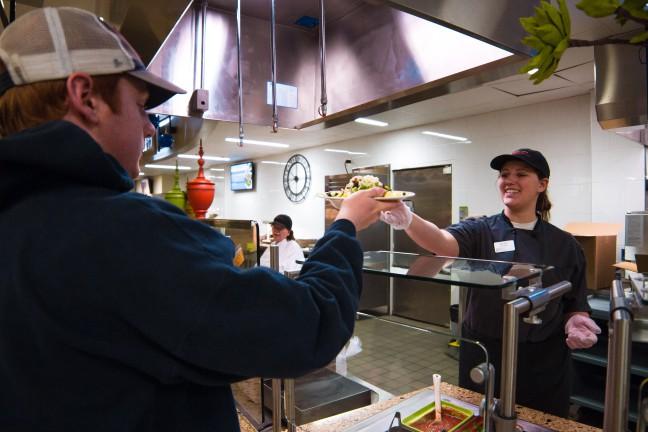On Wednesday, the Swipe Out Hunger drive allowed students to donate to the Badger FARE Program which supports University of Wisconsin students experiencing food insecurity.
Students could add a $1 donation to their purchases at university dining facilities, with proceeds going to the Badger FARE Program, UW communications manager Darcy Wittberger said in an email statement to The Badger Herald.
The Badger FARE Program is a food security fund that directly loads $75 directly onto the Wiscards of students in need, Wittberger said. The program aims to create a judgement-free way for students to address food insecurity.
“With this money, students can purchase hot and cold food or non-perishable food items from dining locations across campus,” Wittberger said. “Because funds go directly to a Wiscard, students utilizing the program remain anonymous to their peers, helping us cultivate a more welcoming environment for those in need.”
Planned Parenthood of Wisconsin increases birth control, family planning services
Students who are eligible for the program include those experiencing long-standing food insecurity or those who have experienced unexpected life events which could lead to food insecurity, Wittberger said.
UW’s Food Insecurity Support Fund also accepts direct donations for the program.
The Open Seat, UW–Madison Food Recovery Network, F.H. King, Keep Food Pantry and Campus Food Shed are other resources for students in need, Wittberger said.
Former UW football player one of three killed in University of Virginia shooting
A national study estimated that 20% of students attending four-year institutions experience food insecurity, meaning they lack access to sufficient quantities of affordable and nutritious food. According to the study, food insecurity has negative effects on academic performance, with large numbers of students facing food insecurity saying they did not go to class or buy a required course textbook as a result of this barrier.
Wittberger said UW understands that students have differing barriers to food access, and these programs are in place to help students get over those hurdles.
“Day-to-day expenses like food, clothing and rent can make it challenging for students to make ends meet,” Wittberger said. “We want to support students and more importantly, remind them they’re not alone.”



















